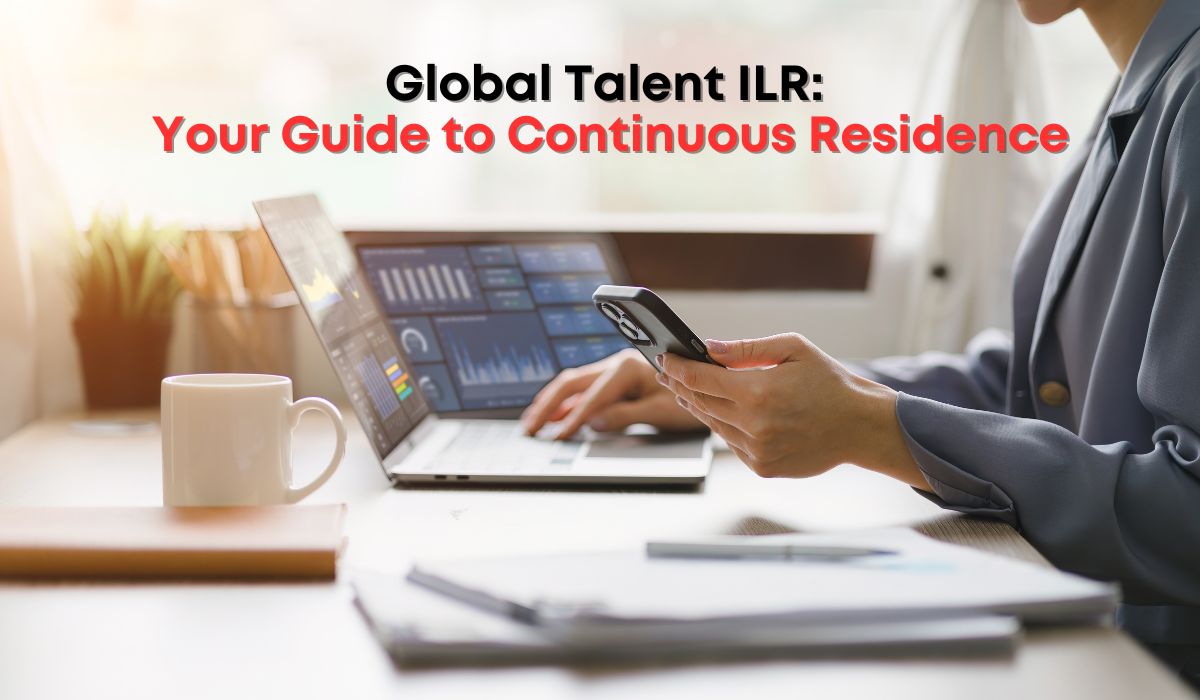For migrants on the Global Talent route, the journey to achieving Indefinite Leave to Remain (ILR), or settlement, in the UK is a significant milestone. Like other immigration routes leading to ILR, Global Talent migrants must satisfy the “continuous residence” requirement. However, this requirement can differ based on the nature of a migrant’s endorsement or visa type. This article unpacks the nuances of the continuous residence requirement, with a particular focus on qualifying periods and absence rules.
What is the “Continuous Residence” Requirement?
The continuous residence requirement ensures that applicants for ILR maintain a stable and ongoing connection to the UK. For Global Talent migrants, this requirement depends on their endorsing body and whether they fall into a “3-year” or “5-year” qualifying period category.
Qualifying Periods for Global Talent ILR
The qualifying period refers to the minimum length of time a migrant must have continuously resided in the UK to be eligible for ILR. Depending on the type of endorsement, Global Talent migrants fall into two categories:
1. The 3-Year Qualifying Period
This shorter qualifying period applies to those endorsed by prominent bodies, including:
- The Royal Society
- The British Academy
- The Royal Academy of Engineering
- UK Research and Innovation (UKRI)
- Arts Council England (for “exceptionally talented” individuals)
- Tech Nation (for “exceptionally talented” individuals)
- Migrants granted Global Talent status via prestigious prizes listed in Appendix Global Talent: Prestigious Prizes
Interestingly, endorsements under Arts Council England extend to fields such as film (via PACT), architecture (via RIBA), and fashion design (via the British Fashion Council).
2. The 5-Year Qualifying Period
This period applies to those endorsed as “exceptionally promising” by Arts Council England or Tech Nation. As with the 3-year category, endorsements cover diverse fields like architecture and fashion design through respective partnerships.
Combining Immigration Routes to Meet the Qualifying Period
A unique advantage of the Global Talent route is the flexibility to “mix and match” different types of immigration permissions. As long as the applicant holds Global Talent permission at the time of their ILR application, they can count time spent under other visa categories—such as Skilled Worker, Innovator Founder, or Tier 1 (excluding Graduate Entrepreneur)—toward their qualifying period.
For example, if a migrant has spent 2 years as a Skilled Worker and 3 years as a Global Talent migrant, they meet the 5-year qualifying period for ILR.
Meeting the Continuous Residence Requirement
The continuous residence requirement comprises three key elements: continuity, unbroken residence, and lawfulness.
1. Continuity: Managing Absences
The Home Office generally allows absences of up to 180 days in any rolling 12-month period. However, there are exceptions for absences caused by:
- Humanitarian or environmental crises
- Travel disruptions (e.g., due to natural disasters or pandemics)
- Compelling personal circumstances (e.g., life-threatening illness or the death of a close family member)
- Research activities for those endorsed by certain bodies, such as the Royal Society or UKRI
Applicants must provide verifiable evidence to support these exceptions. However, for research-related absences, evidential requirements are typically minimal.
2. Unbroken Residence
“Unbroken” residence means the absence of significant legal or penal disruptions. A continuous residence period is considered broken if the applicant:
- Serves a custodial sentence
- Is subject to a deportation or exclusion order
- Remains in the UK without valid permission (with limited exceptions)
3. Lawfulness
Every day within the qualifying period must be lawful. Periods spent in the UK without valid immigration status—whether due to administrative oversights or criminal convictions—will not count towards ILR eligibility.
Evidence and Documentation: Key to Success
When applying for ILR under the Global Talent route, the Home Office scrutinizes absence records and the validity of any exceptions claimed. Applicants must prepare a robust evidence portfolio, including:
- Official documents verifying humanitarian or research activities
- Travel records detailing disruptions or delays
- Medical certificates or letters confirming compassionate circumstances
For research-based absences, providing supplementary evidence—such as letters from host institutions—can mitigate the risk of refusal, even though the evidential bar is lower.
Final Thoughts
The Global Talent route offers a fast-track pathway to settlement for highly skilled migrants across diverse fields, but the continuous residence requirement can be a complex hurdle. Whether your qualifying period is 3 or 5 years, understanding the nuances of “continuity,” “unbroken residence,” and “lawfulness” is crucial to a successful ILR application.
Applicants should seek expert legal advice to navigate the evidential and procedural requirements, ensuring a seamless transition from temporary residence to permanent settlement.
Get in touch: For a comprehensive understanding of your options or queries on UK immigration matters, contact GigaLegal Solicitors at 02074067654 or click here to book a no-obligation consultation with an immigration expert.


